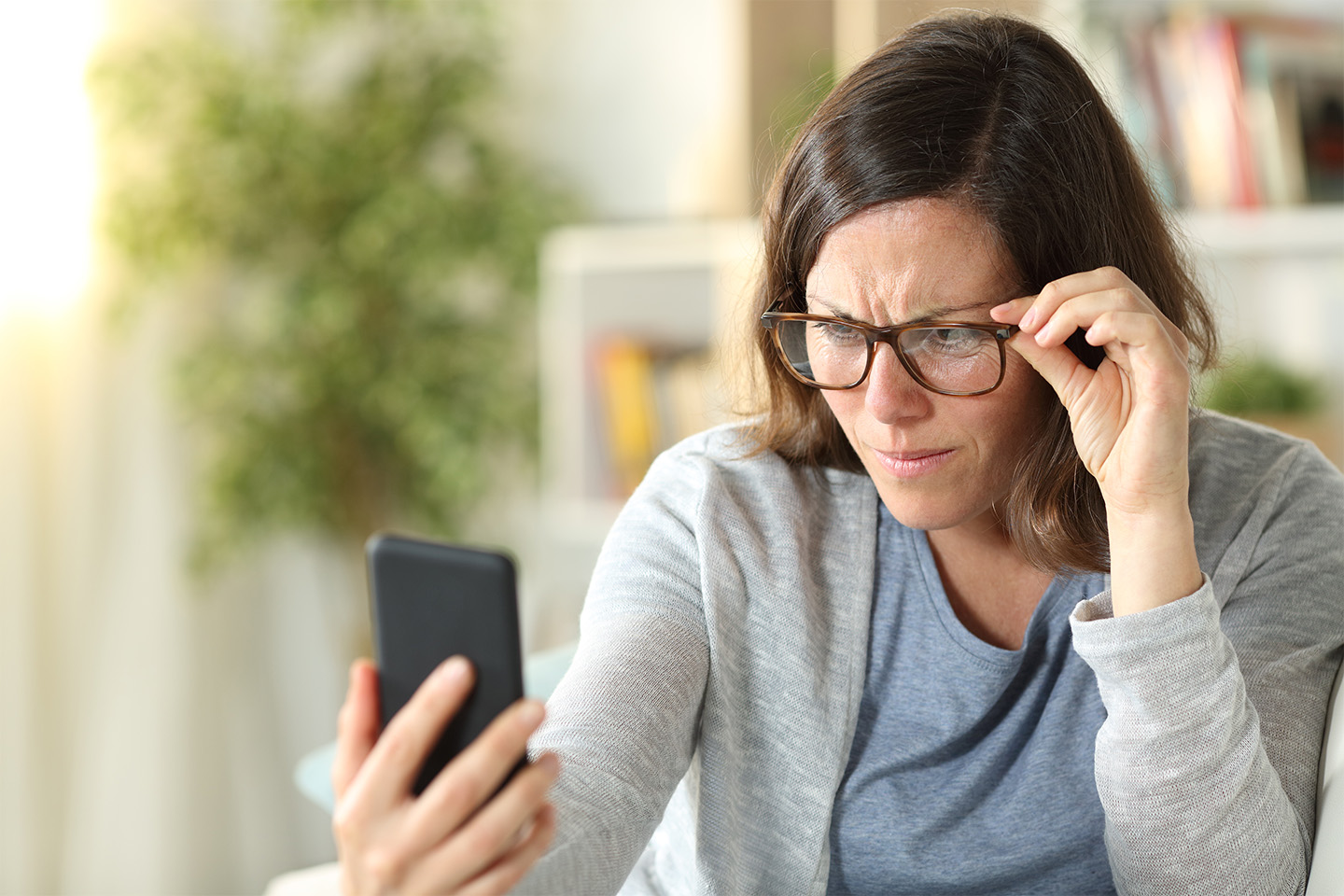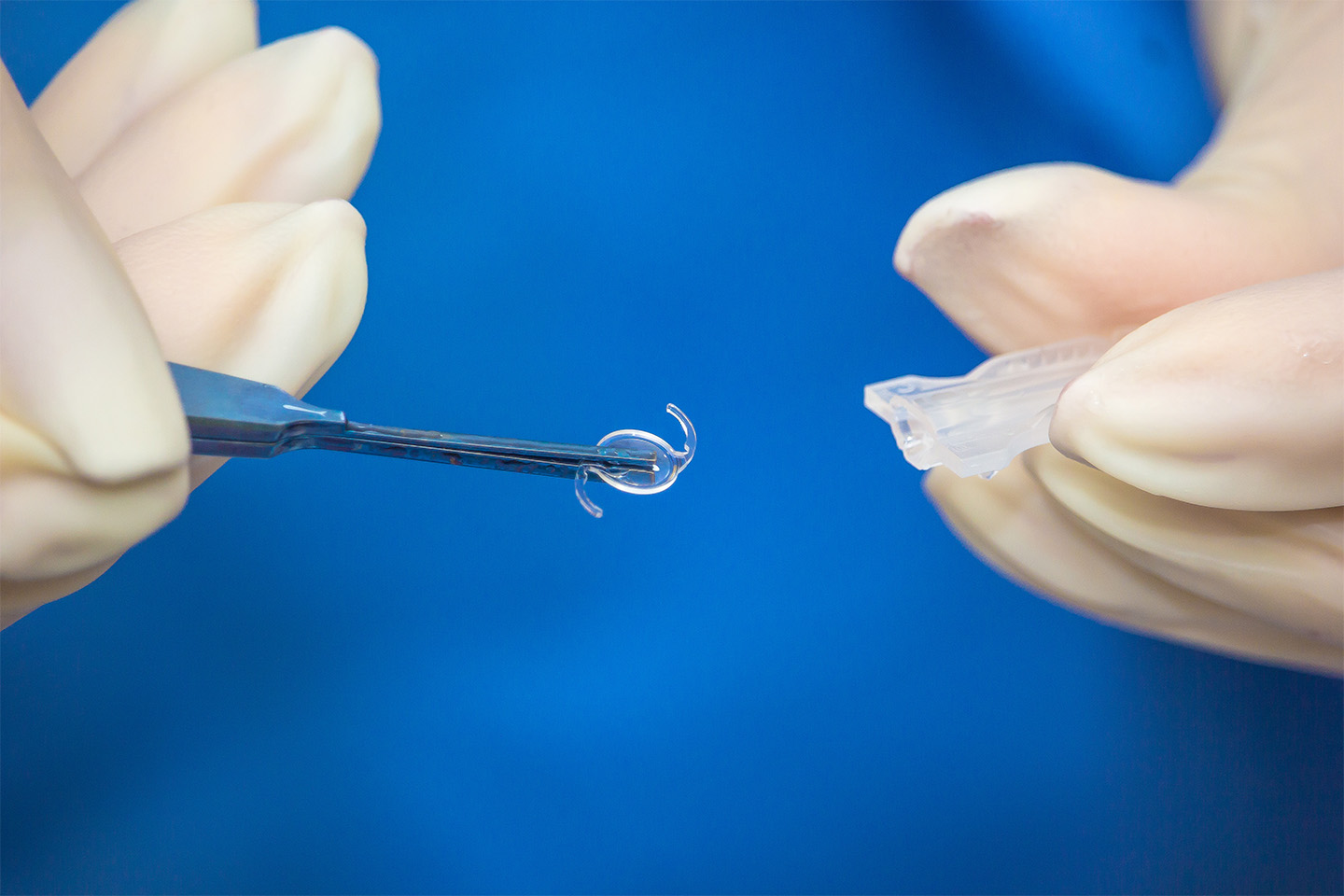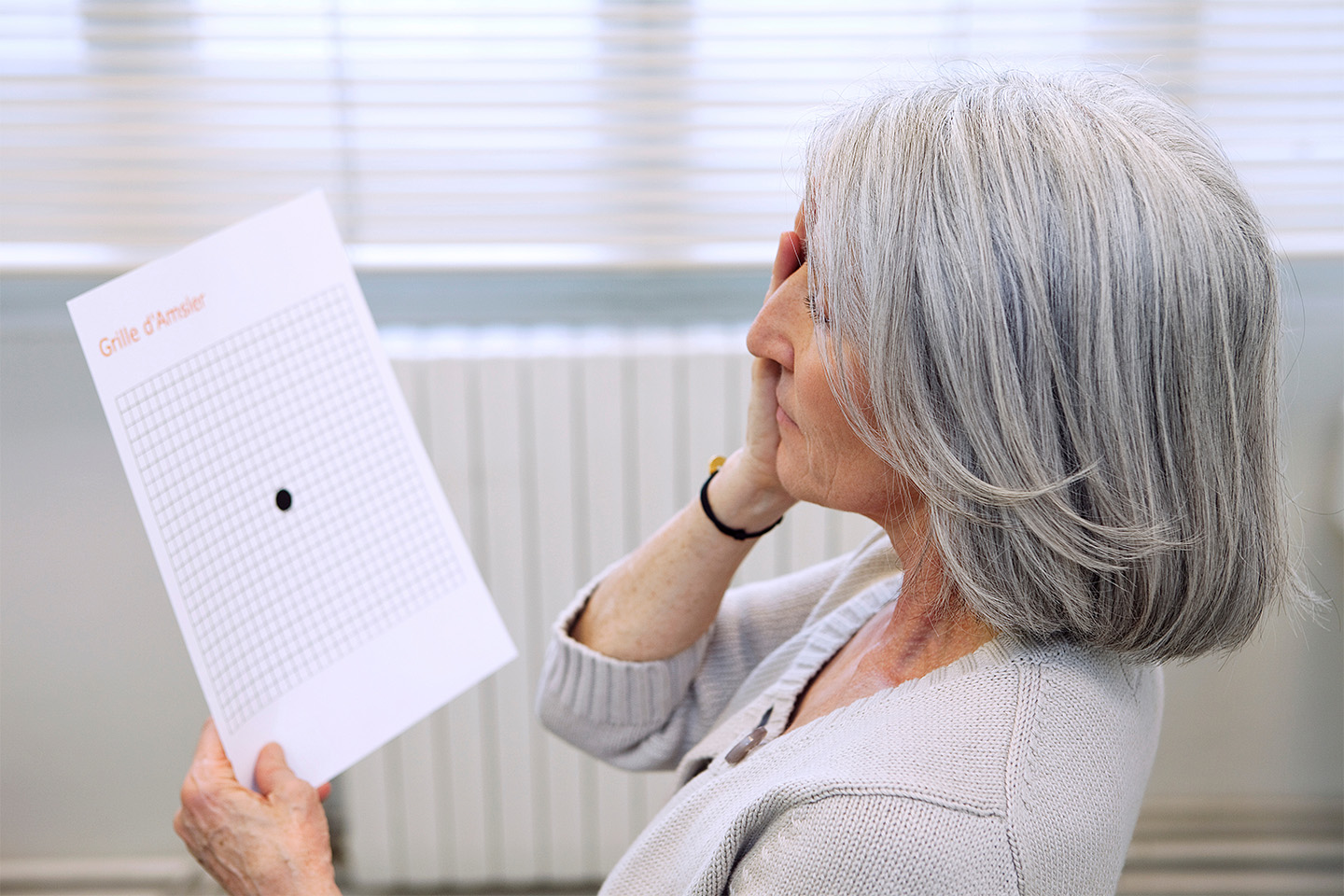Is Blue Light Bad for Your Eyes?

The way that blue light affects our eyes is still largely a mystery, but we know that too much screen exposure can result in eyestrain.
These days, digital screens are our window to the world — for better or for worse. They define how we work, how we talk, and how we play. In fact, you’re almost certainly reading this article on one of those screens right now.
Scientists have long been researching the effects that blue light – a specific wavelength of light – emitted from computer and smartphone screens has on eye health. Though the jury’s out on whether it causes long-term damage, we do know a few things about the way that this wavelength of light interacts with the eye.
-
The largest source of blue light is the sun.
What we think of as light is actually the combination of a range of different colors, including red, orange, yellow, blue, indigo and violet — just like you learned in grade school. Different sources of light can have more or less of any given color, but those seven are the colors that make up the visible spectrum, which is the scientific name for the light that we can see
People are concerned about digital screens because the light they produce is bluer than most light. A few studies have investigated whether blue light can cause long-term damage to our eyes, but the results aren’t totally clear yet. For now, we do know that the majority of blue light that we’re exposed to comes from the sun, not digital screens. The sun is our most important light source, so blue light can’t be all bad — but we wear sunscreen and sunglasses for a reason, so it’s likely not all good, either.
-
Too much exposure to blue light could cause eye problems.
Scientists have started to worry about blue light because of a molecule in our eyes called “rhodopsin.” Rhodopsin helps us see, especially in low light situations, and has a complicated structure that includes attachments to another molecule called retinal. When blue light hits retinal, it causes the whole molecule to twist a tiny bit, which doesn’t happen when the light of a different color like red or green hits retinal. That small twist seems to cause a chain reaction that damages the walls of the cells in the eye.
Since we know that blue light starts this chain reaction, scientists are concerned that exposure to large amounts of blue light might cause damage to our eyes. That being said, there’s no definitive evidence right now that the amount of blue light produced by your cell phone is enough to cause any noticeable damage.
-
Blue light can contribute to eyestrain.
While we don’t currently think that cell phones produce enough blue light to damage eyes, they may contribute to digital eye strain. Because blue light scatters more easily than other wavelengths, it’s not as easy to focus. When you’re looking at a computer, a cell phone, or another blue light-emitting device, this unfocused light reduces contrast and makes your eyes work harder.
Fortunately, there’s a quick fix for this problem: computer glasses. Yellow-tinted lenses increase contrast significantly and cut down on the work for your eyes.
-
You should see your eye doctor.
Still worried about the effect that blue light might be having on your eyes health or vision? Contact the ICON Eyecare and talk to our experts about minimizing the damage of blue light. Our specialists can also evaluate your eye health and talk to you about your options for vision correction, including LASIK. See you soon!
Request An Appointment.
Give us a phone call at (970) 256-0400 Monday – Friday, 8am-5pm to schedule a consultation.










 (970) 256-0400
(970) 256-0400